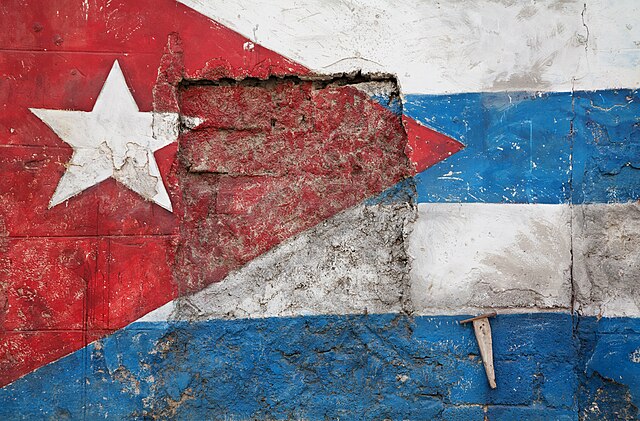Cuba, Communism, and the Problem with Lies

“Lie, lie, and something will remain. The bigger the lie, the more people will believe it.”
That phrase—attributed to Nazi propaganda chief Joseph Goebbels—has become something of an operating manual for authoritarian regimes. Few have perfected it more methodically than communist regimes, which invest enormous resources into building the illusion of utopia—a facade of justice, equality, and prosperity that hides a foundation of repression, scarcity, and fear.
The Cuban regime is no exception. In fact, it may be the most consistent practitioner of this strategy in the Western Hemisphere. Its entire identity as a communist state is built on a web of falsehoods repeated so often they’ve been mistaken for truth.
Take education, for instance. A common refrain in Latin America and beyond is that Cuba boasts the best education system in the region—some even say in the world. But this is one of the regime’s most insidious lies. As the Cuba Decide initiative has reported, while the vast majority of Cuban children do attend school, the education system functions as a tool of indoctrination and political control. Critical thinking is punished. Dissent is repressed. Foundational works of literature and philosophy are banned. What kind of “quality education” forbids questions and criminalizes curiosity?
Or consider Cuba’s much-lauded healthcare system, praised by apologists like filmmaker Michael Moore in his 2007 documentary Sicko. The reality is far bleaker. “Healthcare in Cuba is abysmal for the average citizen,” said María Werlau, director of Archivo Cuba. “There is a form of apartheid that favors the ruling elite and paying foreigners, while prisoners and dissidents are often denied care for political reasons.” In practice, Cubans must often bring bribes—gifts—to receive timely medical attention. Hospitals frequently lack basic supplies. Patients are expected to bring their own linens and hygiene products. Rights we take for granted—like medical privacy, informed consent, and legal recourse in cases of malpractice—simply do not exist in Cuba.
And then there’s the lie of poverty denial—one of communism’s most enduring myths. Across history, communist regimes have claimed to eradicate poverty, when in fact they merely redistribute misery. Cuba is no different. Scarcity is not an exception but a way of life. A recent survey found that 7 out of 10 Cubans had to skip a meal—breakfast, lunch, or dinner—due to lack of food or money. Over half reported going a full day without eating. This is not equality; it is engineered deprivation.
For decades, these lies worked. The regime managed to shape a narrative of success and social justice that many around the world believed. But lies, as I was taught as a child, have short legs—they don’t run forever.
A striking example came just recently. Cuba’s Minister of Labor, Marta Elena Feitó, stood before the National Assembly and declared that the country had “no beggars,” only individuals who had “found an easy way to make money without working.” The statement was so transparently false, so detached from reality, that the regime had no choice but to force her resignation and make her a public scapegoat.
That incident is telling. Even the regime itself is beginning to stumble over the weight of its own lies. Its margin for deception is shrinking. Reality is catching up.
In the end, the problem with lies is not just that they distort truth, but that they eventually collapse under their own contradictions. And in Cuba today, that collapse feels closer than ever.
Photo: A Cuban Flag painted on the crumbling walls of Old Havana by Jorge Royan under CC BY-SA 3.0.
Hernán Alberro is a Senior Fellow with VOC’s Latin America Program. All opinions are those of the author and do not necessarily represent the position or views of the institutions they represent or VOC.

